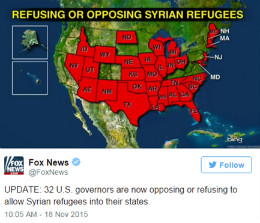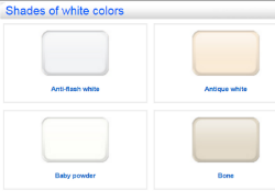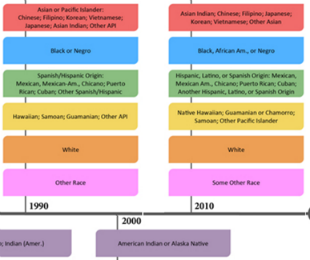Recent terror attacks in Paris and Beirut. Civil war in Syria. Forced exodus of millions of Syrian and Iraqi families. French bombs. U.S. bombs. Russian bombs. Soda can bombs. These are serious times.
This week as European authorities hunted the planners of the November 13th terror attacks that assaulted Paris, the American public entered into a debate about whether to support or suspend President Obama’s plan to allow at least 10,000 refugees from Syria to enter the U.S.

The vociferous opposition from over three-fifths of U.S. state governors, and their arguments about the potential danger produced by admitting Syrian refugees have led me to a not-so-simple question:
Aren’t people of Syrian heritage considered White in the U.S.?
The answer to that question is Yes. According to the U.S. Census Bureau’s definition of race, the official definition of White is as follows:
A person having origins in any of the original peoples of Europe, the Middle East, or North Africa.
So, whenever you see or read any statistics that deal with racial categories in the U.S., keep in mind that all the residents and citizens in our country whose ethnic / cultural heritage comes from countries and regions like Syria, Libya, Egypt, Saudi Arabia, Jordan, Lebanon, Israel, Palestine, Turkey, and Iraq are all White people as far as the U.S. federal government is concerned.
Not only that, according to the stated definition above, people who have their cultural roots in countries in the Middle East are just as White as people whose cultural roots trace back to “the original peoples of Europe”.
So what does this have to do with any of the very serious challenges facing our nation? I would contend that how we see ourselves is fundamental to who we see as enemies, who we see as friends, and how we see the fight ahead.

As a Black man who is familiar with the intra-cultural skirmishes that arise within the African-American community around the topic of who and what gets to be called Black, I am fascinated to see the emergence of cracks in the windshield of our nation’s definition of Whiteness.
As a child of immigrants, I understand the life-altering opportunities created by a family’s decision to make the journey from Foreign Citizen to U.S. Resident Alien to U.S. Citizen. However, as a child of immigrants from Nigeria, I am also keenly aware that the racial label given to migrants, immigrants, and refugees arriving in the U.S. matters just as much as their legal status.
In America, does it mean more to be classified as White than it does to be classified as a citizen?
In many ways, this question is the thread that connects the U.S. national news conversations about how our country should respond to the recent terror attacks, the emergence of ISIS, and the millions of refugees fleeing Syria.
With young people on college campuses and in city streets raising their voices to demand treatment as equal citizens of this country, America has been forced to confront the question of whether Black Americans’ legal status as U.S. citizens is enough to grant them access to the justice they seek.

It is not a stretch to state that among a segment of the American body politic, a portion of the resistance and opposition to the recent protest movements being led by young Black Americans is rooted an Us vs. Them, Non-Black vs. Black, Normal vs. Other narrative regarding racial matters. A similar Brown vs. Non-Brown narrative can be seen in the debate about the refugees who were fleeing to our southern border from Central America last year.
But what happens when everyone is White?
If people of Syrian heritage are classified as White once they get to America, do we see them the same way we would see a French citizen who was fleeing from Paris?
Are there gradations of Whiteness in America? Are some people more White than others?
I wonder if and how American families of Syrian heritage think about and wrestle with their status as White people in moments like this.
I would love to see a new lane of dialogue open up to engage all of these overlapping and intersecting topics. As if things weren’t complicated enough already…
– Day G.
Host, Class of Hope & Change
